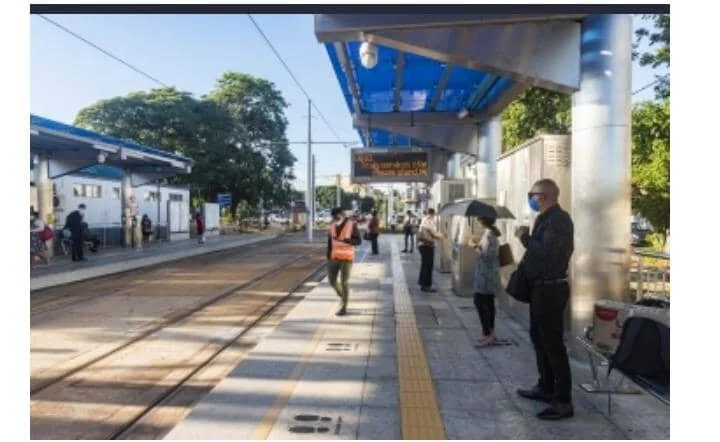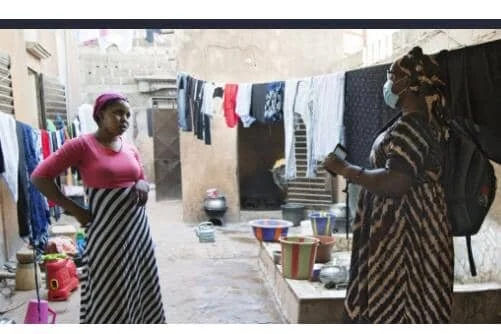During these unprecedented times, it is more important than ever that governments, policymakers, academics, business leaders and civil society come together to find innovative ways of supporting communities and providing hope to younger generations. The pandemic has further highlighted and exacerbated the existing inequalities in our societies, with respect to access to resources, information and power dynamics. Children and young people are among the hardest hit; girls and young women in particular have been disproportionately impacted.
THE ROLE OF ODA IN STRENGTHENING MEDIA INTEGRITY FOR SUSTAINABLE DEVELOPMENT
The DAC defines official development assistance (ODA) as “government aid that promotes and specifically targets the economic development and welfare of developing countries.” Understanding of this definition has changed over time, recognising, for example, the emergence of “non-DAC providers or philanthropic foundations, the diversification of financial instruments for development, or the increasing overlap of development cooperation policy objectives with those of other sectors such as migration and security.”
Unlocking Finance To Build Forward Better From The Covid-19 Crisis & Accelerate Delivery Of Sustainable Development.
The African government's economic crisis over the Covid-19 Pandemic equals (1 to 7)% of their GDP, contributed by African Governments deploying fewer funds and measures for high-quality recovery. At The Youth Café, we believe that there is a need for financial education. This will increase unlocking finance to build forward better from COVID-19 and accelerate delivery on Sustainable Development as intended: To identify effective measures to address the overarching challenge of mobilizing adequate and sustainable finance to invest in sustainable recovery from the COVID-19 crisis and accelerate the implementation of the 2030 Agenda and Agenda 2063. To identify and articulate the financing needs and provide high-level insights on opportunities to mobilize finance, focusing on the role of the Liquidity and Sustainability Facility designed and launched by ECA and partners.
The Youth Café At The Voluntary National Review-Voluntary Local Review Workshop.
Voluntary National Review is a strategy based on the 2030 Agenda: Member states to "conduct regular and inclusive reviews of progress at the national and sub-national levels, which are country-led and country-driven. Like the 2030 Agenda of participation, The Youth Café strives for global connection, has reached over 72 countries, and is a local and national rope for achieving goals. The Youth Cafés principles are a call to action for governments, civil societies, private and public sectors, bi- and multilateral, and knowledge institutions. To invest in mutual prospects and work in partnership for sustainable development.
Statement By African Major Groups And Stakeholders To COP 26/CMP16/CMA3
During the global COP26 conference held in Glasgow from 31 October to 13 November, African Major Groups And Stakeholders delivered a statement voicing their support, doubts, concerns and hopes for the future of climate action in Africa and Globally. The Youth Café as a pan-African youth-led and youth-serving organization, fully support the contents of this statement.
Statement Of The Chairperson Of The African Union Commission On The Occasion Of Africa Youth Day
African Economic Outlook 2021 | A Youth Lens
Every year, the OECD Development Centre, the African Development Bank, the United Nations Development Programme, and the United Nations Economic Commission for Africa publish a report that focuses on the economics of most African countries. The report reviews the recent economic situation and predicts the short-term interrelated economic, social, and political evolution of all African economies.
Social, Environmental Factors Seen Behind Africa’s Low COVID-19 Cases
The pandemic has largely been in a younger age group and has been more pronounced in a few countries, suggesting country-specific aspects are driving the pattern of disease and death. COVID-19 transmission in Africa has been marked by relatively fewer infections, which have been on the decline over the past months, owing to a variety of socio-ecological factors as well as early and strong public health measures taken by governments across the region.
Why AU Should Push For Equitable Access To COVID-19 Vaccines
The first initiative is the COVAX Facility, a global initiative that brings together governments and manufacturers to ensure that COVID-19 vaccines reach those in greatest need. This initiative has the potential to benefit African countries if it succeeds in getting sufficient vaccine supplies at affordable prices that minimize debt. The proposed waiver would allow all countries globally to collaborate on the COVID-19 response, including vaccine development and distribution, without being unduly hampered by the complexity of laws and restrictions governing intellectual property.
Community Health Workers: The Unsung Heroes In Africa’s COVID-19 Response
The WHO defines Community Health Workers (CHWs) as lay people who live in the communities they serve and who function as a critical link between those communities and the primary-healthcare system. In Africa, they provide low-cost interventions for common maternal and pediatric health problems such as pneumonia, diarrhea, undernutrition, malaria, HIV, measles and now COVID-19. They also assist with immunization.











